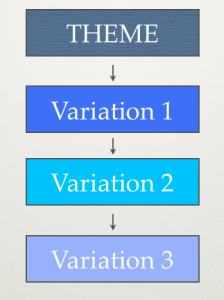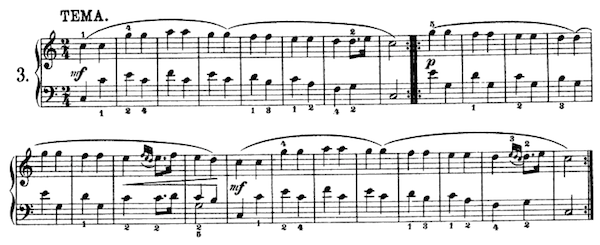Hello, I’m Rick Phillips. I am a freelance writer, reviewer, teacher, speaker, broadcaster, podcaster and concert host, all in the field of classical music. I regularly host travel tours to European and U.S. cities to attend classical music festivals and events. For 30 years I worked in a variety of locations and positions in the Music Dept. of CBC Radio, the Canadian public broadcaster – producer, executive producer, manager, and trainer, in Montreal, Edmonton, Calgary and Toronto. I produced and hosted Sound Advice® my own national radio show from 1994-2008 – a weekly guide to classical music and recordings. Before the CBC, I was a musician and university lecturer in music. Presenting adult education/music history and appreciation courses has been part of my life for over 40 years. I’ve been offering seminars on musical topics at Toronto Pursuits for more than 20 years and it remains a highlight of every summer.
For Toronto Pursuits 2025, I’ll be leading the seminar From Motif to Masterpiece: Themes & Variations. The theme & variations form is one of the simplest in music: a given melody, idea or theme is put through a series of melodic, harmonic, rhythmic, tempo and other changes, revealing different aspects and traits of the original. The process unifies the work, while offering diversity and interest.

Here’s a simple sentence to illustrate with text. “Jim ran to the store to buy some eggs,” contains a subject, an active verb and a purpose. That’s our theme.
1) “To buy some eggs, Jim ran to the store.” The meaning is the same, but the focus has changed to strengthen the reason Jim is running instead of the action itself. The rhythm and flow of the sentence are also different
2) “Jim ran. To the store. Eggs. He needed them.” Now our theme has been broken up into short, punchy segments, again changing rhythm and flow. This can create excitement and tension while the simplicity of it quickly grabs our attention.
3) “Jim quickly ran to the store to buy some eggs before the sale ended.” In this variation, we receive more detail. The action of running is now enhanced by the adverb ‘quickly’ while the mention of the sale provides context. The meaning is the same but now we have more of a sense of urgency, reason and importance.
A writer can change the structure, pacing, flow and details of a sentence, emphasizing different traits of it, creating tension or expressing emotion while still maintaining the meaning. In music, a composer can alter the tempo, harmony, orchestration and other aspects to engage the listener, presenting different nuances and traits while maintaining the underlying theme.
To illustrate, I invite you to listen to a simple theme & variation piece by the young Mozart. The theme is an old French folk song that today we know as “Twinkle, Twinkle,” or “Baa, Baa, Black Sheep.” The theme runs from 0:00 – 0:27, followed by 12 variations on it, one after another. Listen here: https://www.youtube.com/watch?v=h1RXWCQvOOE

All are welcome in the seminar; there is no need to read or write music. Since everyone will come to our seminar with a different degree of musical knowledge and experience, part of my job will be to establish a level playing field to allow everyone to participate freely. I will provide some history, background and context, present the recordings and steer the discussions, and I’ll expect you to participate with your comments, observations and ideas. We’ll observe how great composers treated the theme & variations form through history, how it developed and why, and the reasons the form continues to be popular today.
As always at Toronto Pursuits, we will learn from each other through discussion. Come to our Toronto Pursuits seminar with an open mind and ears, leaving preconceived notions, opinions and musical tastes behind.
Feel free to contact me directly prior to our week together in Toronto in July. My website is www.soundadvice1.com and e-mail is soundadvice@sympatico.ca.
I look forward to meeting and getting to know you better, and in our seminar From Motif to Masterpiece uncover with you some of the greatest musical works by the likes of Bach, Beethoven, Haydn, Elgar, Rachmaninoff and more.
Warmest regards,
Rick Phillips
Image credits: MusicTheoryAcademy.com & Mozart’s “Twinkle Twinkle Little Star” (12 variations on Ah vous dirai-je, Maman)
